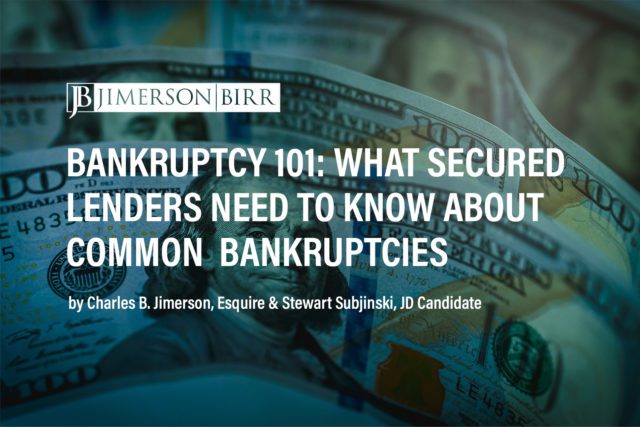What does recovering from non-debtor entities encompass?
Recovering from non-debtor entities, in the context of bankruptcy legal services for creditors in Florida, refers to seeking compensation from entities that are not the debtor themselves. These non-debtor entities can include entities that have received fraudulent transfers, preferential transfers, or other transactions from the debtor that may be subject to recovery actions
Consider an instance where a debtor facing bankruptcy transfers valuable property to a relative, intending to shield the property from creditor claims. In this situation, the creditor may file an action under the FUFTA to recover the property from the non-debtor relative, alleging that the transfer was made with the intent to hinder, delay, or defraud the creditor. The creditor can seek to void the transfer and obtain the property, ensuring that it is available to satisfy the creditor’s claim.
Need a bankruptcy law advocate? Schedule your consultation today with a top bankruptcy and restructuring attorney.
Which Florida laws and regulations apply to recovering from non-debtor entities?
Several laws and regulations apply to recovering from non-debtor entities in Florida, with the primary statute being the Florida Uniform Fraudulent Transfer Act (FUFTA). This act enables creditors to pursue claims against non-debtor entities that have received fraudulent transfers from a debtor.
Additionally, the Florida Statutes, Chapter 726, governs fraudulent transfers in general, guiding actions for fraudulent transfers, defenses, and remedies available to creditors. Furthermore, the Bankruptcy Code provides federal laws governing bankruptcy proceedings, which may impact recovery actions against non-debtor entities.
Creditors seeking to recover from non-debtor entities should consult with an experienced bankruptcy attorney who can help navigate the complex interplay of state and federal laws and regulations to maximize the potential for recovery.
How does recovering from non-debtor entities connect to the bankruptcy process?
Recovering from non-debtor entities is essential to bankruptcy legal services for creditors. This process enables creditors to seek compensation from parties other than the debtor, such as individuals or businesses receiving assets through fraudulent or preferential transfers. In bankruptcy, creditors may pursue these actions to maximize their potential recovery and ensure a fair distribution of the debtor’s assets.
For instance, the Bankruptcy Code allows creditors to challenge certain transfers made by the debtor within a specific timeframe before the bankruptcy filing. Additionally, FUFTA provides a state-level framework for creditors to recover assets from non-debtor entities in cases involving fraudulent transfers. By pursuing these recovery actions, creditors can protect their interests and potentially recover more assets than they would receive through bankruptcy alone.
When a set of facts is appropriate for bankruptcy services, there are many paths a claimant may take. We are value-based attorneys at Jimerson Birr, which means we look at each action with our clients from the point of view of costs and benefits while reducing liability. Then, based on our client’s objectives, we chart a path to seek appropriate remedies.
To determine whether your unique situation may necessitate litigation or another form of specialized bankruptcy advocacy, please contact our office to set up your initial consultation.
What legal risks do creditors face when recovering from non-debtor entities?
Consider the following risks:
- Statute of limitations: Creditors must act within specific timeframes to initiate actions under the Bankruptcy Code or FUFTA. Failure to comply with these time limitations may result in the creditor being unable to pursue recovery from the non-debtor entity.
- Proving fraudulent intent: To recover assets under FUFTA successfully, creditors must demonstrate the debtor’s intent to hinder, delay, or defraud creditors. This burden of proof can be challenging, as it requires presenting sufficient evidence to establish the debtor’s fraudulent intent.
- Costs of litigation: Pursuing recovery actions against non-debtor entities can be expensive, as it often involves engaging in lengthy and complex litigation. Creditors must weigh the potential benefits of recovery against litigation’s associated costs and risks.
- Uncertain outcomes: There is no guarantee that creditors will prevail in recovery actions against non-debtor entities. Unfavorable court decisions or settlements may result in creditors recovering less than anticipated or nothing at all.
- Potential counterclaims: Non-debtor entities may assert counterclaims against the creditor, such as alleging that the creditor engaged in wrongful conduct or that the transfer was made in good faith. These counterclaims could complicate the recovery process and expose the creditor to additional legal risks.
- Impact on creditor relationships: Aggressively pursuing recovery actions against non-debtor entities may strain the creditor’s business relationships, potentially leading to lost business opportunities or reputational harm
Please contact our office to set up your initial consultation to see what forms of legal protection and advocacy may be available for your unique situation.
How should bankruptcy counsel facilitate recovering from non-debtor entities?
Counsel should consider the following to protect their clients:
- Conducting thorough due diligence: Investigate the debtor’s financial history, transactions, and relationships with non-debtor entities to identify potentially fraudulent or preferential transfers. Comprehensive due diligence can help creditors build a strong case and determine whether pursuing recovery is worthwhile.
- Collaborating with other creditors: Join forces with other creditors with similar claims against non-debtor entities. Pooling resources can help reduce litigation costs and increase the likelihood of success.
- Pursuing alternative dispute resolution: Consider mediation or arbitration as alternatives to litigation, which can help resolve disputes more quickly and cost-effectively while reducing the risk of adverse outcomes.
- Securing prejudgment remedies: Request prejudgment remedies, such as attachment or garnishment, to protect the creditor’s interests and improve the likelihood of recovery.
- Monitoring statute of limitations: Stay vigilant about deadlines for filing claims under the Bankruptcy Code and FUFTA, ensuring timely action to preserve the creditor’s rights.
- Engaging experienced legal counsel: Retain attorneys specializing in bankruptcy and creditors’ rights to navigate the complex legal landscape and develop effective strategies for recovery.
Frequently Asked Questions
- Can a creditor pursue recovery from non-debtor entities without filing a bankruptcy case?
Yes, creditors can pursue recovery from non-debtor entities outside of bankruptcy by initiating a lawsuit under state law, such as the Florida Uniform Fraudulent Transfer Act (FUFTA). However, this option’s viability depends on whether the debtor has not filed for bankruptcy or if the potential recovery outweighs the benefits of participating in the bankruptcy process.
- What is the difference between a fraudulent transfer and a preferential transfer?
A fraudulent transfer involves a debtor intentionally transferring assets to a non-debtor entity to hinder, delay, or defraud creditors. In contrast, a preferential transfer occurs when a debtor moves assets to a specific creditor within a certain timeframe before filing for bankruptcy, which may result in an unfair advantage to that creditor over others. Both types of transfers can be subject to recovery actions by creditors.
- How long does a creditor have to initiate a recovery action against a non-debtor entity?
The statute of limitations for recovery actions varies depending on the type of claim and applicable jurisdiction. Under the Bankruptcy Code, a creditor generally has two years from the bankruptcy filing date to challenge preferential transfers. For fraudulent transfers, the statute of limitations under FUFTA is four years from the date of the transfer or one year from when the transfer was discovered, whichever is later.
Have more questions about how bankruptcy services could positively impact your business operations and relationships?
Crucially, this overview of recovering from non-debtor entities does not begin to cover all the laws implicated by this issue or the factors that may compel the application of such laws. Every case is unique, and the laws can produce different outcomes depending on the individual circumstances.
Jimerson Birr attorneys guide our clients to help make informed decisions while ensuring their rights are respected and protected. Our lawyers are highly trained and experienced in the nuances of the law, so they can accurately interpret statutes and case law and holistically prepare individuals or companies for their legal endeavors. Through this intense personal investment and advocacy, our lawyers will help resolve the issue’s complicated legal problems efficiently and effectively.
Having a Jimerson Birr attorney on your side means securing a team of seasoned, multi-dimensional, cross-functional legal professionals. Whether it is a transaction, an operational issue, a regulatory challenge, or a contested legal predicament that may require court intervention, we remain tireless advocates at every step. Being a value-added law firm means putting the client at the forefront of everything we do. We use our experience to help our clients navigate even the most complex problems and come out the other side triumphant.
If you want to understand your case, the merits of your claim or defense, potential monetary awards, or the amount of exposure you face, you should speak with a qualified Jimerson Birr lawyer. Our experienced team of attorneys is here to help. Call Jimerson Birr at (904) 389-0050 or use the contact form to schedule a consultation.

We live by our 7 Superior Service Commitments
- Conferring Client-Defined Value
- Efficient and Cost-Effective
- Accessibility
- Delivering an Experience While Delivering Results
- Meaningful and Enduring Partnership
- Exceptional Communication Based Upon Listening
- Accountability to Goals










